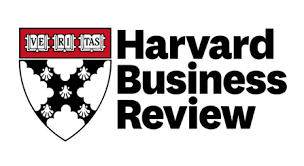
Weekly Business Insights from Top Ten Business Magazines
Extractive summaries and key takeaways from the articles curated from TOP TEN BUSINESS MAGAZINES to promote informed business decision-making | Since September 2017 | Week 346 | April 26 -May 2, 2024

Shaping Section | 3
Highly Skilled Professionals Want Your Work But Not Your Job
By Diane Gherson and Lynda Gratton | Harvard Business Review Magazine | May–June 2024 Issue
Extractive Summary of the Article | Listen
At almost every company the authors talk with, managers are facing the same recruiting challenge. They simply do not have the talent they need in-house, and they’re unable to persuade highly skilled professionals to come on board full-time. As a result, companies are embracing the freelance model more than ever before. And many of such individuals organizations are looking to attract—in technology, data sciences, machine learning, blockchain, and the internet of things—have a different mindset now. They want more-flexible working arrangements.
Independent work used to be an unreliable source of income that was heavily dependent on personal networks, but today job-matching platforms—such as Upwork and Fiverr—can instantly match highly skilled candidates with employers’ needs. And the shift is catching on globally: Gartner predicts that independent workers will make up 35% to 40% of the global workforce by 2025.
Integrating and managing what the authors call the “blended workforce” will be one of the main managerial challenges in the years ahead. How will the managers avoid developing a problematic dependence on outside talent over time—and how can they make sure their own employees’ skills don’t atrophy? Manage freelancers without the formal authority over employees that is traditionally invested in company managers is another challenge. Its important to recognize that managing freelance workers will require a different set of skills; they’re specialists, after all, and we need to evaluate them strictly on project deliverables, rather than on their contribution to overall performance. We should also knows that we can’t rely on the (often unspoken) leverage of pay increases or enhanced career opportunities to motivate them and manage their performance. Finally, the organizations would consider whether full-time team members will stay committed once they see the autonomy granted to freelancers, who can more easily decline extra work or inconvenient demands. How will they react, say, to a freelancer calling in to join a team stand-up that they’ve been told they must attend in person? How will they feel when freelancers are given a pass on pitching in when crises arise? How can we keep everyone in various work arrangements appropriately engaged?
So what to do some of the most helpful lessons, based on the authors’ research those could bodes for the future of the enterprise are: help freelancers understand and embrace company culture, follow rigorous practices to retain institutional knowledge, adopt a “sponsor” mindset to guide freelancers’ performance, leverage digital workflows and build trust to manage changes in project needs.
Looking ahead, the authors see two key challenges for companies. First, as newer generations increasingly choose freelance work, they may put the full-time employment model at risk. Second, companies may also be in danger of developing a concentration of risk-averse individuals in their in-house workforces.
3 key takeaways from the article
- At majority of the companies managers are facing the same recruiting challenge. They simply do not have the talent they need in-house, and they’re becoming increasingly unable to persuade highly skilled professionals to come on board full-time. As a result, companies are embracing the freelance model more than ever before. Integrating and managing what is called the “blended workforce” will be one of the main managerial challenges in the years ahead. How will the managers manage these?
- Some of the most helpful lessons are: help freelancers understand and embrace company culture, follow rigorous practices to retain institutional knowledge, adopt a “sponsor” mindset to guide freelancers’ performance, leverage digital workflows and build trust to manage changes in project needs.
- Two key challenges for companies. First, as newer generations increasingly choose freelance work, they may put the full-time employment model at risk. Second, companies may also be in danger of developing a concentration of risk-averse individuals in their in-house workforces.
(Copyright lies with the publisher)
Topics: Work, Freelancers, Career, Jobs
